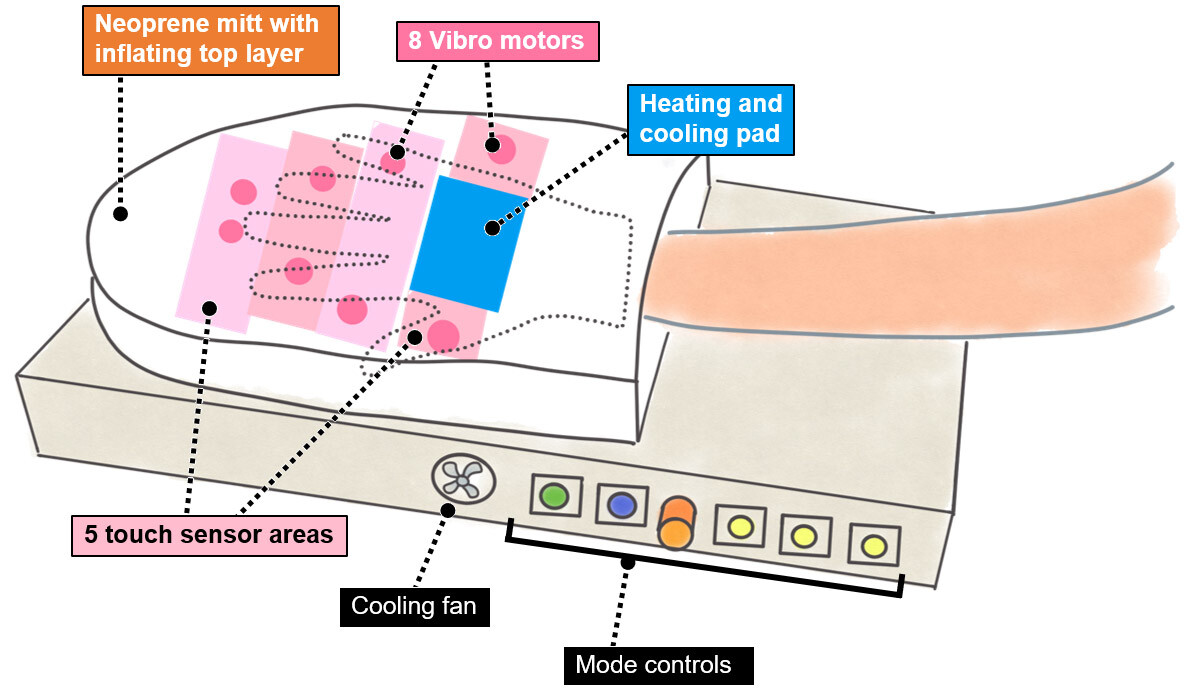tl;dr: The Tactile Emoticon uses connected mitts to send touch-based messages through vibration, pressure, and temperature. Studies with 68 participants show how people shape and interpret these tactile signals based on emotion, context, and social norms, offering design insights for more expressive remote touch communication.
Despite the importance of touch in human–human relations, research in affective tactile practices is in its infancy, lacking in-depth understanding needed to inform the design of remote digital touch communication. This article reports two qualitative studies that explore tactile affective communication in specific social contexts, and the bi-directional creation, sending and interpretation of digital touch messages using a purpose-built research tool, the Tactile Emoticon. The system comprises a pair of remotely connected mitts, which enable users in different locations to communicate through tactile messages, by orchestrating duration and level of three haptic sensations: vibration, pressure and temperature. Qualitative analysis shows the nuanced ways in which 68 participants configured these elements to make meaning from touch messages they sent and received. It points to the affect and emotion of touch, its sensoriality and ambiguity, the significance of context, social norms and expectations of touch participants. Findings suggest key design considerations for digital touch communication, where the emphasis shifts from generating ‘recognizable touches’ to tools that allow people to shape their touches and establish common understanding about their meaning.
